Country |
Switzerland’s contribution |
Measures |
Implemented by |
Afghanistan |
CHF 1 million |
Strengthening crisis resilience and securing the food supply for the long term |
Local partner (World Food Programme WFP) |
CHF 1.2 million budgeted |
Adjustments to measures against COVID-19 in basic education (distance learning, etc.), in accordance with the specifications of the Afghan Ministry of Education |
Local partner (Education Cannot Wait ECW) |
|
Albania |
CHF 300,000 |
Support for GPs in the form of online training in patient triage |
Local partner (UNDP) |
Bosnia and Herzegovina |
CHF 190,000 |
Emergency assistance for at-risk households to maintain their pre-crisis financial situation Strengthening local communities to respond quickly to emergencies |
Local partner (Caritas Switzerland) |
Kyrgyzstan |
CHF 67,000 |
Securing the food supply by supporting farmers with seeds |
Local partner (Helvetas) |
CHF 200,000 |
Securing the food supply by supporting social institutions |
Local partners |
|
Moldova
|
CHF 770,000 |
Strengthening the healthcare sector Alternative sales channels for SMEs and small-scale farmers to generate income despite the economic collapse |
Local partners (UNDP, WHO) |
Mongolia |
CHF 35,000 |
Supply of 750 Children with food and hygiene products. |
People in need |
Nepal |
CHF 5 million |
Strengthening the Nepalese government to mitigate the economic and social impact on the population e.g. orderly and safe return of labour migrants, within the vocational training project development of guidelines and protective measures for a safe working environment. |
SDC/local partners |
Serbia |
CHF 200,000 |
Aid for COVID-19 risk groups Keeping soup kitchens and blood donations running Medical supplies Psychological support for people living in isolation |
Local partner (Serbian Red Cross) |
Tajikistan |
CHF 300,000 |
Training and awareness raising measures in the healthcare sector on how to deal with COVID-19 infections |
Local partners (UNICEF, AGAH) |
Tanzania |
CHF 500,000 |
Loan for a COVID-19 screening system Radio awareness campaign on the dangers of the coronavirus |
Local partners |
CHF 4 million budgeted |
1.2 million households to receive financial support via the Tanzania Social Action Fund (TASAF) |
Local partner (TASAF) |
|
Ukraine
|
CHF 150,000 |
Support for local communities in crisis management through knowledge transfer regarding hygiene measures and dealing with high-risk groups
|
Local partners (Swiss TPH, MoH) |
COVID-19: Switzerland strengthens international cooperation
The coronavirus is also spreading in developing countries, and the impact on them is especially severe. In the spirit of solidarity, Switzerland is responding quickly and effectively to the latest challenges through its international cooperation. It has already taken measures in a number of countries to alleviate the economic and social effects of the pandemic and has so far contributed CHF 101.42 million to the global response to COVID-19. On 29 April 2020, the Federal Council has decided that Switzerland will provide CHF 400 million to support international relief efforts in connection with the COVID-19 pandemic, particularly in developing countries.
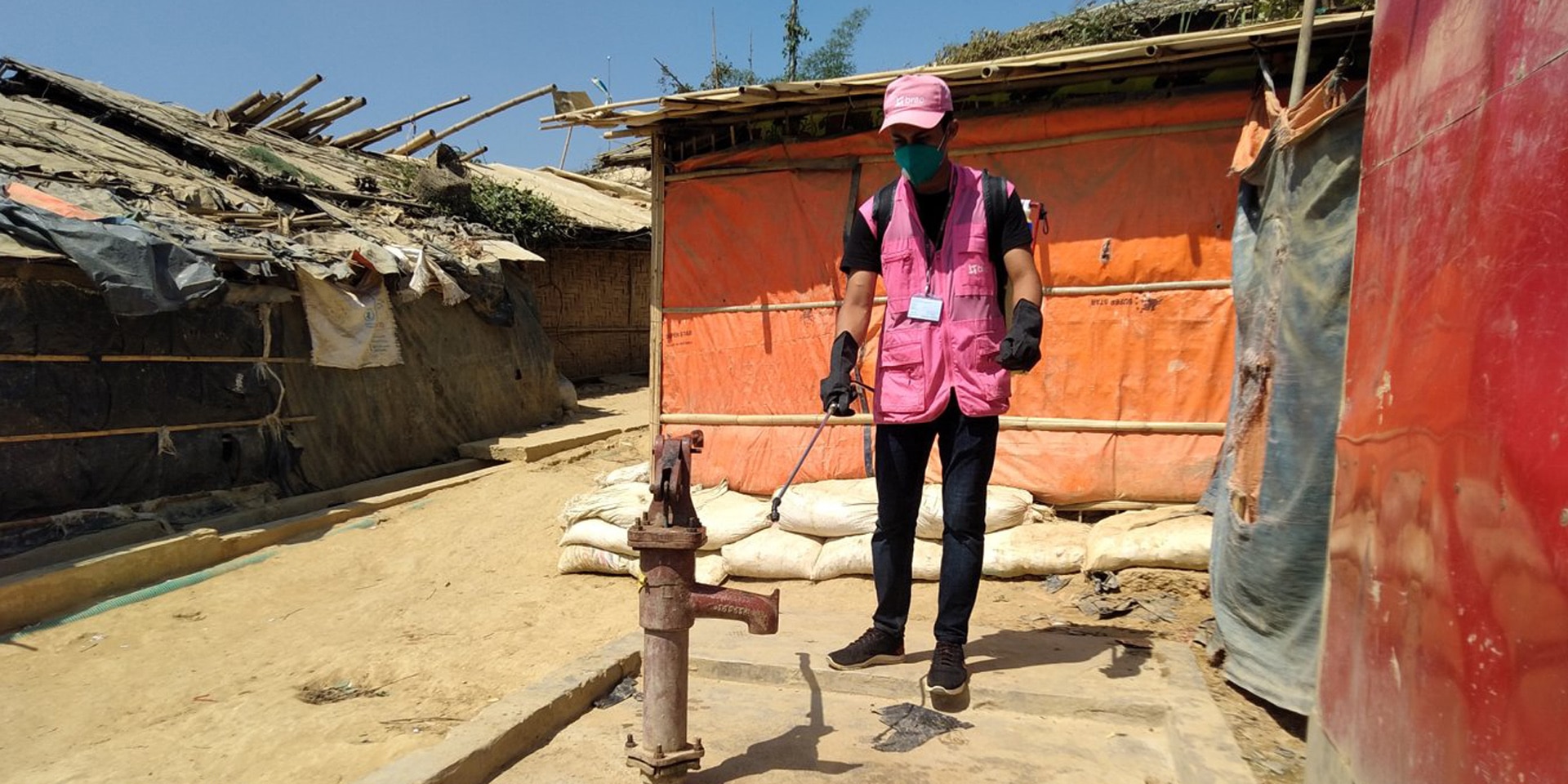
Thanks to Swiss support, large areas in the Cox Bazaar refugee camp in Bangladesh can be disinfected to prevent the spread of coronavirus. © BRAC Bangladesch
The COVID-19 pandemic is having a drastic effect on people’s health and social lives as well as on the economy, and it is hitting developing countries especially hard. Many of them do not have a functioning healthcare system, and their populations do not have savings, regulated working conditions or a stable social security apparatus to protect them against the loss of their livelihood. Malnutrition, HIV and tuberculosis also make many people in these countries more susceptible to this new lung disease. On top of this, social distancing is hard to implement where large families live together in very small homes, toilets are shared by a large number of people, and drinking water is in short supply. An outbreak of the virus in a refugee camp such as those in Syria and Bangladesh would thus be a humanitarian disaster. Many people are currently losing their livelihoods and will see no choice but to leave their homes.
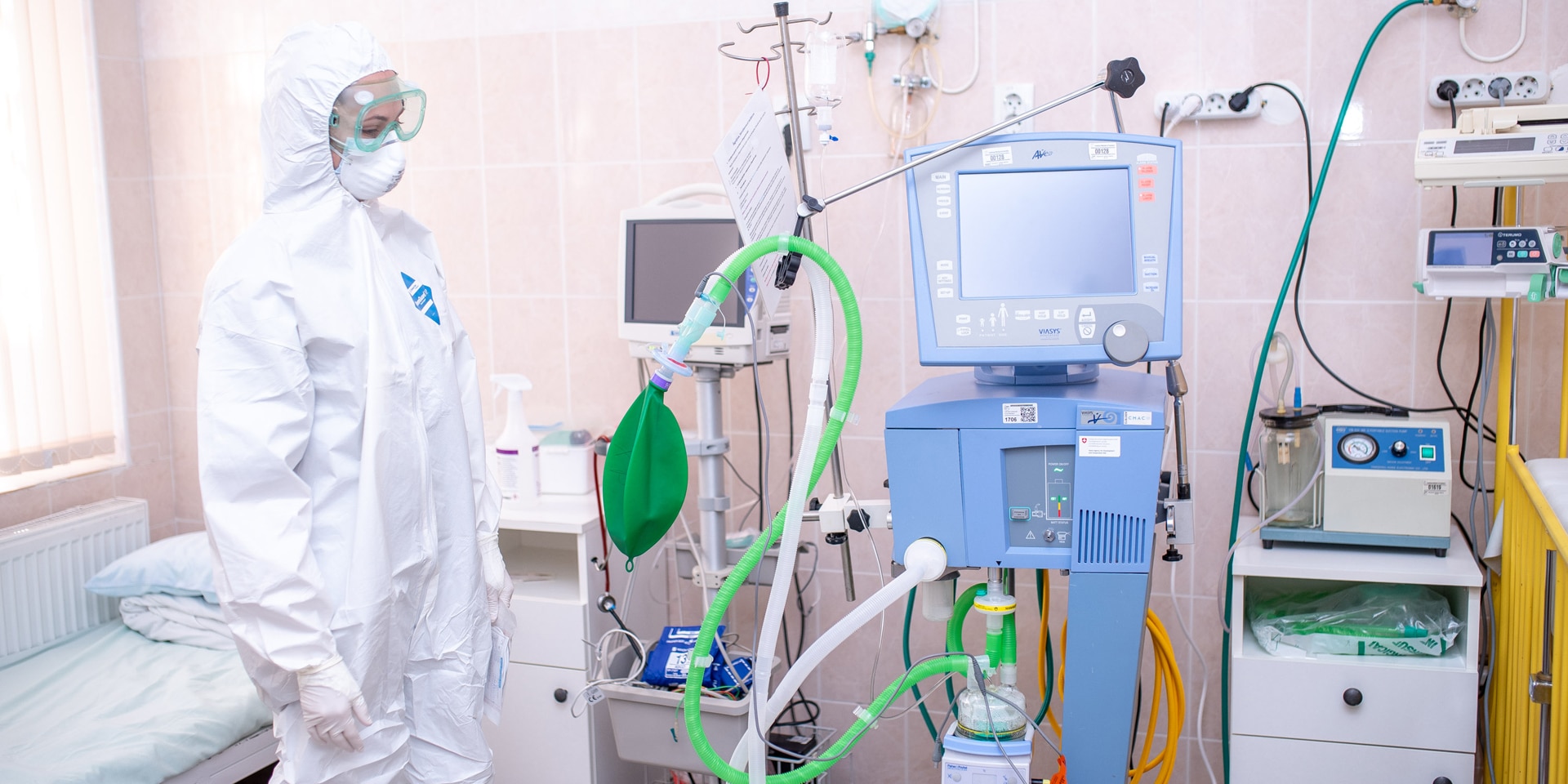
Fast and unbureaucratic response in international cooperation
It is in Switzerland’s interests to support other states in the fight to overcome the COVID-19 crisis in order to limit the further spread of the pandemic and its devastating impact. Switzerland’s response in various areas of international cooperation has been fast, effective and flexible:
- Humanitarian aid: meeting peopleʼs urgent needs (healthcare, food)
- Bilateral development aid: mitigating the economic and social impact through immediate and medium-term adjustment of activities
- Global cooperation: responding to global challenges and supporting partner countries
Switzerland’s humanitarian tradition is a cornerstone of its foreign policy and of special significance in the current situation. To enhance its effectiveness in relation to the coronavirus pandemic, international cooperation is centred on a close relationship or “nexus” between immediate humanitarian aid and medium-to-long-term development cooperation. By combining all areas of international cooperation and working together with local partners, Switzerland can put measures in place professionally and efficiently to create lasting benefits for the populations concerned.
Global support in the fight against COVID-19
The Swiss Agency for Development and Cooperation (SDC) has provided CHF 101.42 million to date from its existing budgets for humanitarian aid, bilateral development cooperation and global cooperation in connection with the COVID-19 pandemic (see table below for examples). Switzerland has succeeded in implementing targeted measures quickly in the focus regions thanks to the solid partnerships it enjoys as a result of its long-standing presence in the countries in question.
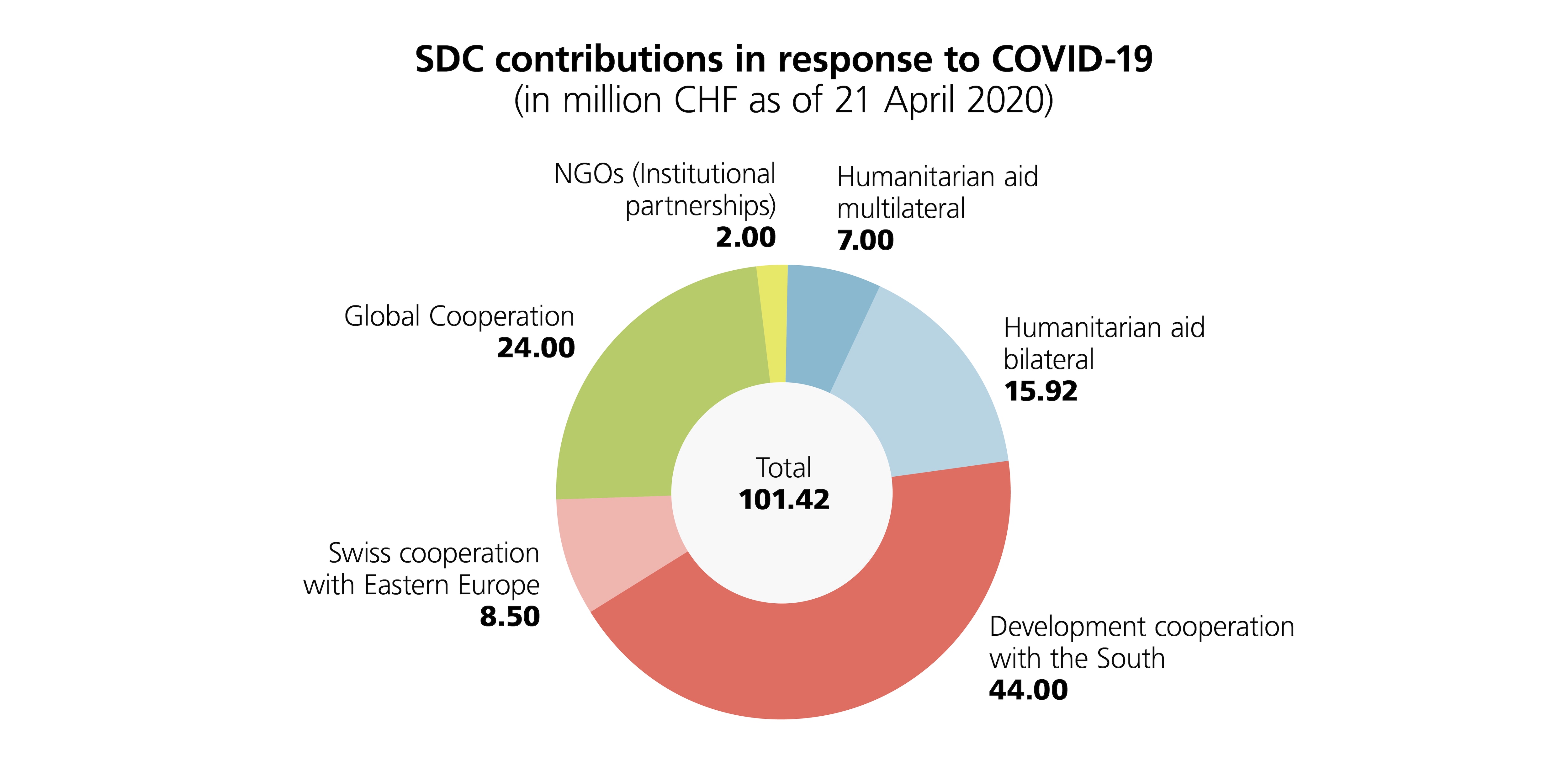
Joint, global response
Switzerland is also actively involved in the response to the coronavirus crisis at the multilateral level, helping the international community to combat the pandemic. For instance, the Federal Council decided on 29 April 2020 that Switzerland will provide CHF 400 million to support international relief efforts in connection with COVID-19, particularly in developing countries.
The United Nations, the International Committee of the Red Cross (ICRC), the International Federation of Red Cross and Red Crescent Societies (IFRC), the G20 and other organisations made an appeal for financial support at the end of March with a view to maintaining their operations during the crisis. They still need funds for additional measures to halt the spread of the virus and mitigate the economic and social impact of the pandemic. As a first step, the Federal Council wants Switzerland to grant the ICRC an interest-free loan of up to CHF 200 million, repayable within seven years.
Switzerland had already provided the World Health Organization (WHO) with CHF 300,000 at the start of February 2020 to prepare hospitals in Laos for the pandemic. Local organisations and specialists are training healthcare staff in the field to diagnose COVID-19 infections and isolate suspected cases.
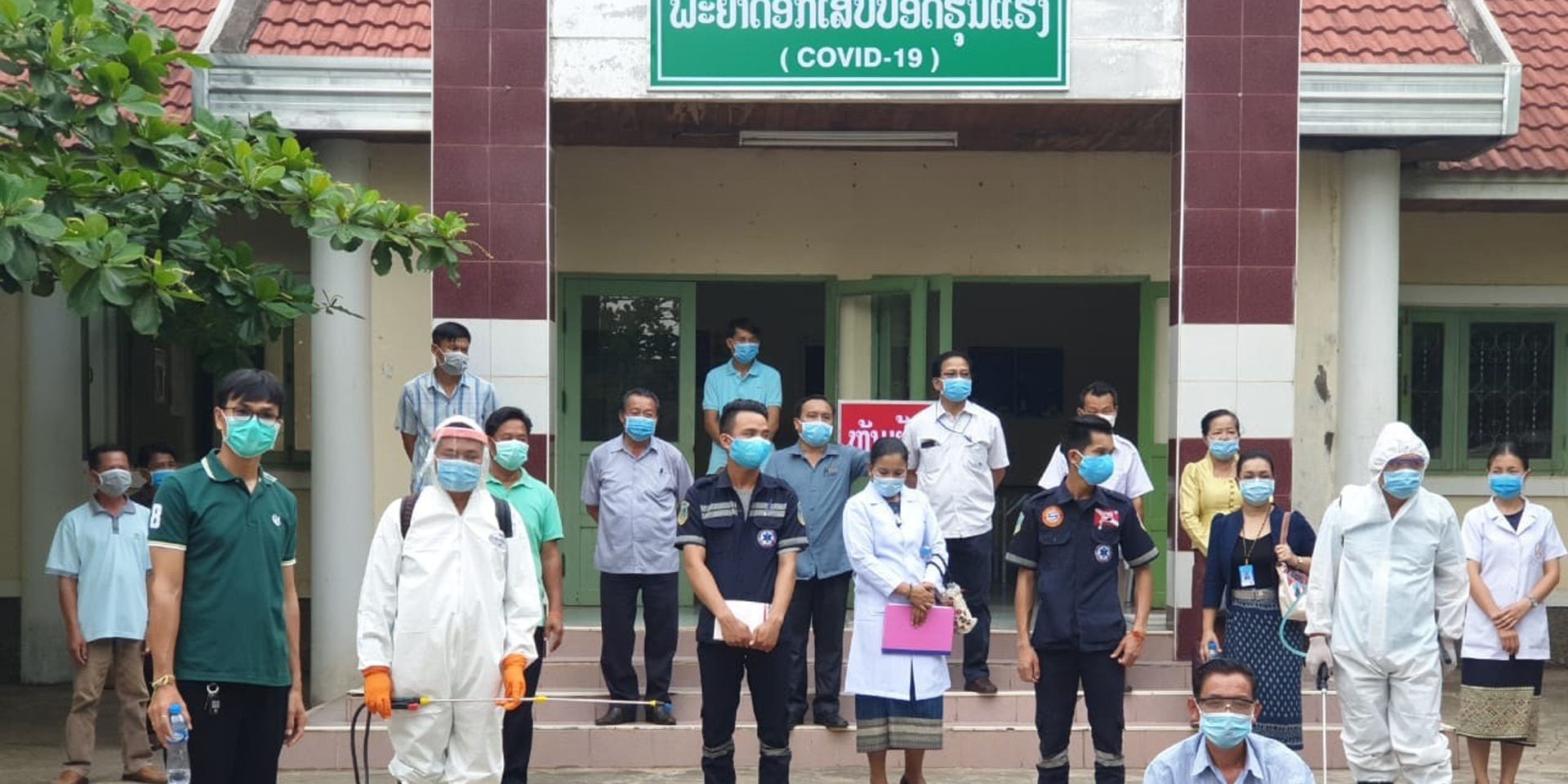
On 2 April 2020, all UN member states but five signed a UN resolution to strengthen global solidarity in connection with the COVID-19 pandemic. Switzerland was one of the countries behind the initiative, a key commitment by the international community to work together in overcoming this crisis.
Swiss Humanitarian Aid is also supplying equipment to selected countries. It sent 10,000 protective suits to Italy on 8 April. Other materials had previously been delivered to China, Nepal, Serbia and Greece. Meanwhile, Switzerland’s own supply of material for combating the pandemic remains secured. All deliveries are checked with the Federal Office of Public Health (FOPH), the Federal Office for National Economic Supply (FONES) and the State Secretariat for Economic Affairs (SECO).
Swiss NGOs adapting their programmes
Swiss NGOs that are involved in healthcare and receive funding from the SDC are also adapting their activities in line with the current challenges. Here are some examples:
- Supporting health ministries, local hospitals and clinics through training and protective measures for medical staff
- Improving sanitation and medical facilities in refugee camps
- Informing local populations about a wide range of prevention measures
- Protecting high-risk groups and providing psychological support to those affected
Switzerland’s international cooperation strategically well prepared to respond to crises
Switzerland’s excellent international reputation is based in large measure on its humanitarian tradition. Under its foreign policy strategy, Switzerland provides impartial assistance in the spirit of solidarity in the context of crises, armed conflicts and humanitarian disasters. The focus is on meeting people’s needs, ensuring their safety and dignity and protecting their rights.
Switzerland’s international cooperation strategy builds on this foreign policy strategy and, with the exception of climate funding, does not involve any fixed allocation of funds. This makes it possible to respond to the current challenges in developing countries in a targeted manner.

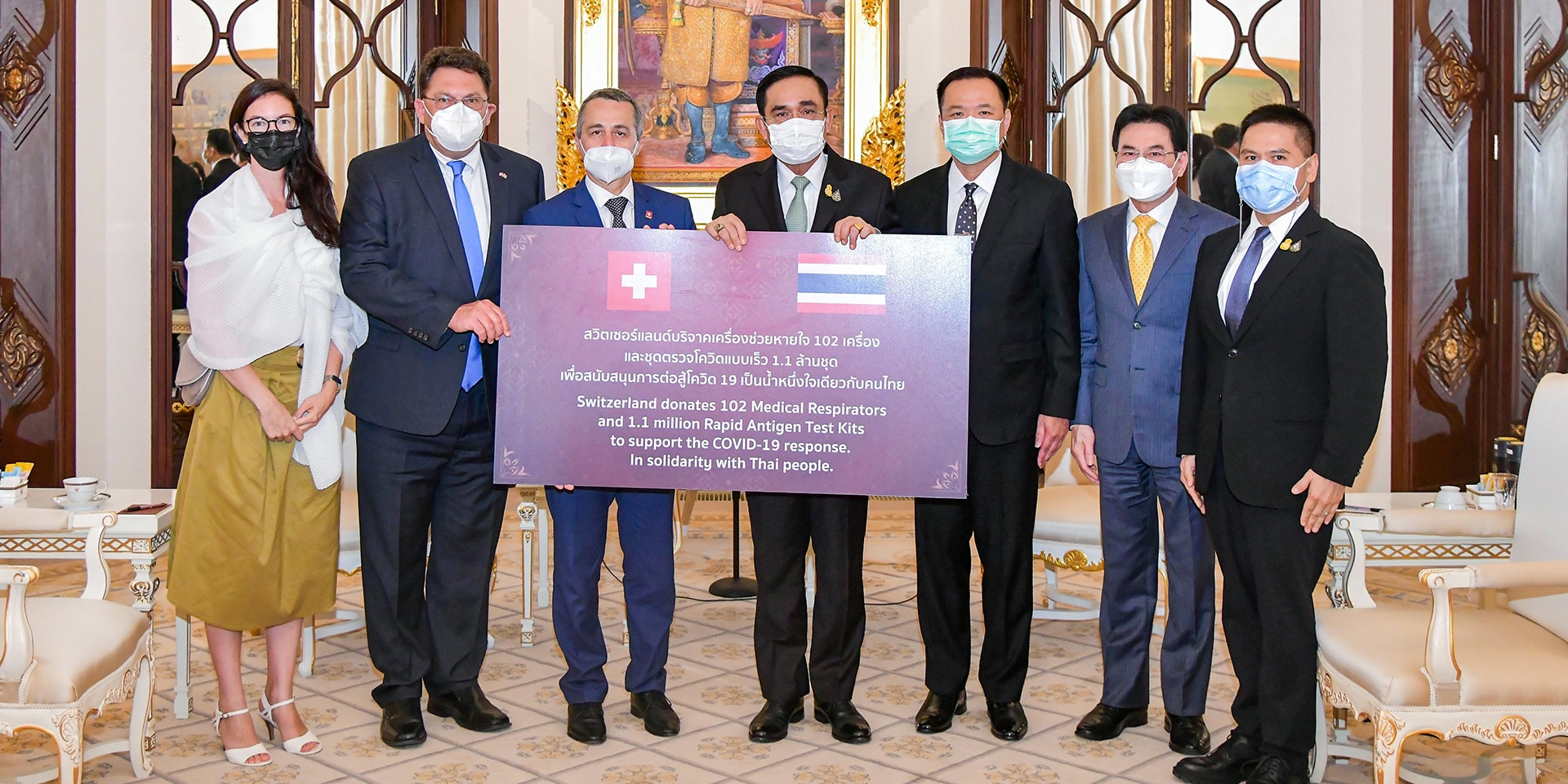

.jpg)